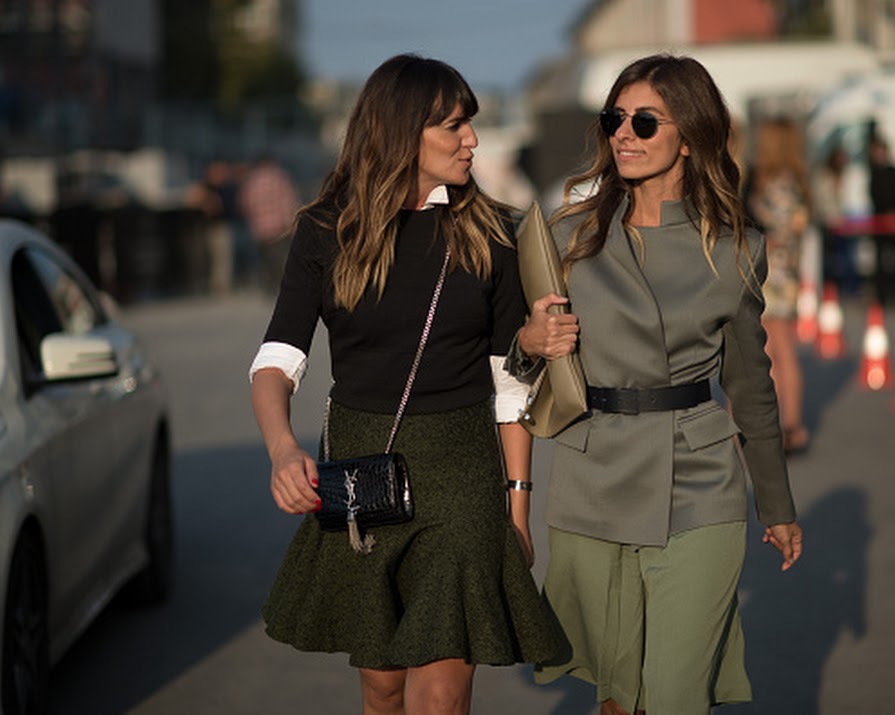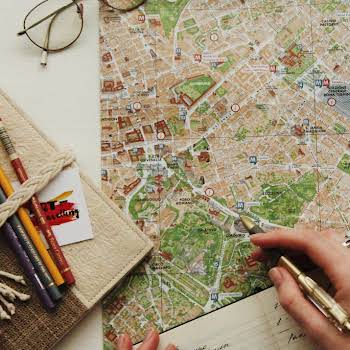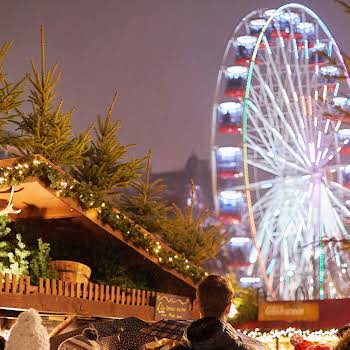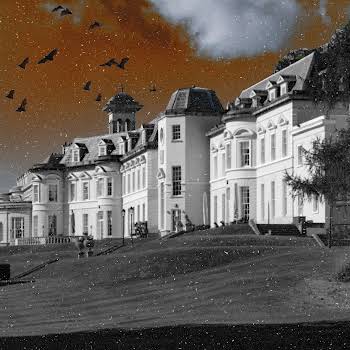
By IMAGE
17th Mar 2016
17th Mar 2016
Is emigration a blessing or a curse? Expat in London Niamh Mulvey suggests that separation from home could, in fact, be the key to our Irishness.
Like most things, leaving is easier now. Leaving is so easy, sometimes the question is not why go, but why stay at all? Especially when you are from a tiny nation on the edge of one continent, looking towards another. To be Irish is to grow up with a dizzying sense of elsewhere – and the possibilities that those other, better places might afford. In my secondary school economics class, we learned over and over again, ?We are a small, open economy, we are a small, open economy?. The Celtic Tiger was roaring, but our teacher didn’t want us getting any notions. We were small, and we always would be. That made us vulnerable, and this ?openness? seemed like a way to protect ourselves, to allow us to survive.
And we are open, you have to give us that. There’s no significant anti-EU feeling in Ireland, unlike the UK. And, let’s be honest, our lack of indigenous industry means we have little choice but to be (mostly) open-minded about people (as well as investment) from other nations. Immigration? to Ireland during the good? years did not, thankfully,? create a significant right-wing ?backlash. And of course, if ?you travel around the globe, ?you can’t help but notice: ?we’re everywhere. You can? go nowhere without tripping over some sunburnt friend of your cousin from Carlow. We can’t stay still. So to do all this and to complain of homesickness…
Well, that just seems churlish, doesn’t it?
I emailed every expat I know to ask them about their experience of homesickness,? and I was surprised (and touched) by ?the unsentimental candour of their responses. Most said they didn’t experience? homesickness in the sense of missing a? place – the sadness they felt was mostly to ‘do with missing friends and family. There? was a lot of resignation – a sense that coming home was an increasingly unlikely possibility, and equally a sense that what ?home? actually meant was constantly changing, and could never simply be the place they had left. I also realised, reading through the responses, that being away forces you to notice things about your home that you never did before. This act of noticing pushes you into a state of interrogation about where you came from – an interrogation that is often unresolved.
Maybe homesickness – this interrogation of what home is, what it used to be and what it could be; what we miss about it and what we are secretly delighted to leave behind – maybe all of this shows us not what we miss about home, but what we actually want for ourselves. In that way, I think homesickness, or dislocation, or exile, whatever we call it, can actually be a productive, even creative thing. Think of the many Irish writers who left but who could not stop writing about Ireland over and over again in an attempt to understand it. I’ve been reading a lot of Maeve Brennan lately – that legendary New Yorker writer who left Ireland as a teenager, but who wrote about it constantly in an attempt to reconcile herself in relation to her family and her home country. Critics have spoken of a ?ravenous nostalgia? that overcame her in her later years – she spent her last years in a state of near homelessness, alone and impoverished.
Does this represent a defeat – a life ruined by dislocation, by homesickness? Given all she achieved, it would be far too simplistic to say so. But it’s clear that this constant interrogation – which only an emigrant would feel compelled to do – is what made her a celebrated writer.
Separation from home forces us to see it clearly. Things being the way they are just because that’s the way they’ve always been… that no longer seems good enough. But, and this is the question: where do we go from here? The sadness of the emigrant is that the longer you stay away, the more pointless these questions become. All of our perspectives, our grand ideas, our drunk talk in pubs across the world … what’s the point if we never go back? This is the wryness, the amused cynicism I see in the faces of the older Irish emigrants I meet in my local, some of whom have been in London for 40 years. They’re not interested in talking about home. They want to watch the football (GAA or Premiership), and get on with things.
The past is a different country; for emigrants, this is twice as true. But it seems precious to worry too much over our Irishness in a world where we should be looking to see what unites rather than divides us from our neighbours. The history of the world is the history of diminishing types of civilisations? lost languages, lost cultures, lost ways of being. History is ruthlessly unsentimental, and so must we be, to survive it. We can’t afford to fall victim to ?ravenous nostalgia? – and we don’t have to. We can use all of the good things particular to our Irish background: our education, our sense of equality, our openness, and we can leave what’s not useful behind.
@neevkm
This article originally appeared in the March issue of IMAGE Magazine.























